Grimm Determination: Gavin Grimm vows to keep fighting after Supreme Court setback
The Supreme Court cancelled, but Gavin Grimm is not relenting in the fight to allow trans people in public spaces

Gavin Grimm was sitting in class when he learned his fight for equality had faltered.
“I started getting people Facebook messaging me, and I started getting text messages,” he says. The messages were from family and friends sharing the news that the Supreme Court had sent his lawsuit against the Gloucester County School Board back to the 4th U.S. Circuit Court of Appeals. It’s a lawsuit that has made the 17-year-old Grimm one of the major faces of the transgender rights movement, as he sues his school district for barring him from using the boys’ restroom alongside his cisgender peers.
Grimm’s setback occurred because of the Trump administration. The Fourth Circuit had originally ruled that Grimm could sue the school district under Title IX, in a landmark decision affirming that discriminating against transgender people constituted sex discrimination. But the appeals court had based its decision on an interpretation of Title IX advanced by the Obama administration. The Trump administration last month rescinded that guidance, and because the new Department of Education is no longer siding with Grimm, the Supreme Court decided that the Fourth Circuit must reconsider Grimm’s case.
Grimm had already prepared himself for disappointment. “I tried to keep myself open, without any expectations, and aware of any things that could happen,” he says. But Grimm also sees this as just one step in a longer journey towards achieving full equality for transgender people.
“I’ve always thought it was important for trans people to have access to affirming spaces,” he says. “But my viewpoint on it has actually evolved, especially in light of statements by people like Laverne Cox, who showed me it’s not just about bathrooms, it’s about the right of trans people to exist in public spaces.”
Of Gloucester County’s policy, he says: “This is basically legislation about if we can exist in public or not, and it’s these ways of trying to segregate us from the rest of the population.”
Grimm’s words echo with the certainty and determination of a person who sees himself in the right, regardless of what any judge decides. But they are also the words of a teen who has essentially risked ostracization in a close-knit, semi-rural county of just under 37,000 people.
“The bigger this grows, I feel like the more the backlash from the community grows,” he says. “I definitely faced an increase in hostility because everything’s been getting more heated up. Now, that’s never yet boiled over into a confrontation. It’s just people are treating me with more of a cold shoulder.
“I’ll get a couple more nasty looks in a supermarket, or I’ll speak to someone, I’ll wave to someone who I previously spoke to, and they’ll look away very pointedly. People will move seats away from me so that they don’t have to sit near me, or they’ll avoid engaging with me at all possible costs, in some cases. There are friends of my mother’s who now treat her as if they’d never met, or are less friendly than they were before, and that may or may not be attributed to the situation.”
The delay to a final decision on Grimm’s lawsuit hasn’t just rankled him or the community, but also the activists and organizations supporting Grimm.
“I think this is justice delayed, not justice denied,” Joshua Block of the American Civil Liberties Union, who is serving as Grimm’s chief legal counsel, said in a conference call on Monday. “There are five other district courts that have ruled in favor of trans kids so far. If you do a survey of the case law, the overwhelming majority of the courts that have addressed this issue have held that excluding boys and girls who are transgender from using the same facilities as other boys and girls violates either Title IX or the Equal Protection Clause. … We look forward to making the case to the Fourth Circuit now, and hopefully getting another victory there.”
Though the Supreme Court might not end up hearing his case until 2019, Grimm is resolute in his determination to keep fighting. He understands his case can serve as a blueprint for other transgender students who are being discriminated against because of their gender identity.
“Now, more so than ever, this fight is about other trans students that will benefit, hopefully, from [the Supreme Court’s] decision, because by the time this decision is handed down I will have graduated,” says Grimm. “Obviously, this is not what we wanted, and it’s disappointing that it’s going to drag this conversation out for even longer, which is going to keep trans kids who are in school, or who are coming of school age, in limbo for an extended period of time. But I am still as passionate and happy to be doing this as ever. If it took 10 years, I’d stick with it.”
METRO WEEKLY: It’s been a year since Metro Weekly first interviewed you. What’s changed in that time?
GRIMM: A lot of it is the same old stuff. I’m doing a lot of interviews, I’m devoting a lot of time to whatever activism I can do, but a lot of it has changed as well. I think my life has certainly gotten a lot busier, but it’s just been an intensification of what I’ve already been dealing with.
MW: What do you think about the Trump administration’s decision to rescind the school guidance on transgender children?
GRIMM: It was very disappointing. People have said that it’s not about discriminating against trans students, it’s about giving the rights back to the states. But a civil rights issue is not a state issue, a civil rights issue is a federal issue, and when you give the states the ability to decide individually on civil rights, people don’t get their civil rights.
We saw this with gay marriage. I mean, from the first state to legalize it to the time when it was federally legalized we saw how many states in between that, in between a long span of time? I think it was something like 13? That’s just one example of how long it takes for states to individually afford people the freedoms that they’re entitled to with their civil liberties.
MW: Has the president kept his word from the campaign, when he said he’d be an advocate for the LGBTQ community?
GRIMM: Certainly not. The only thing I’ve seen him yet do with respect for the community is rescind that guidance and you simply cannot claim to care for or protect trans students while, at the same time, putting them in positions of immediate danger.
I mean, trans kids have an unacceptably high incidence of suicide attempts and suicide rates and that is directly correlated to a lack of support in communities and families. To send trans kids a message that they’re not valid, that they don’t deserve protection, and then turn around and say, “Oh, but we want to advocate for you,” those two things are in direct conflict and are mutually exclusive.
MW: Are you still being forced to use the restroom in the nurse’s office at school?
GRIMM: Yeah, I do go to the nurse’s office. I try to avoid it entirely whenever I can, but there are times when I just have to go to the bathroom, so I use the nurse’s office.
MW: Are the teachers and students treating you any differently?
GRIMM: Well, honestly, the teachers have been fine, at least all the teachers I’ve had. With students, there’s more of a mixed reception. I’ll put it this way, my teachers are all either supportive or they don’t indicate a opinion on the subject, whereas students are much more clearly inclined to their opinions. I can get some really nasty reactions from students, or I can get some really positive reactions.
MW: What would your advice be to school boards that are debating adding transgender people to their nondiscrimination policies?
GRIMM: I would say look to other districts that have enacted accepting policies, and see that there is no danger. The only result of these accepting policies has been that trans kids are safe and happy and respected as who they are. I would just urge them to understand that trans kids aren’t a unique and different breed from their peers. They are deserving of the same access to the same spaces as anyone else, and they don’t pose a threat in those spaces.
MW: The Supreme Court reprimanded groups that deliberately misgendered you, How did that feel?
GRIMM: Well, I mean, I think that it’s a positive thing. Certainly, it was inappropriate to refer to me with feminine pronouns in those documents, and that the Supreme Court basically said, “Hey, that’s not appropriate,” it was definitely nice to hear.
MW: Gov. Terry McAuliffe has defended against a slew of anti-LGBTQ bills. Are you concerned about the prospect of a future governor who’s not as supportive of trans rights?
GRIMM: First of all, Governor McAuliffe is a wonderful guy. I’ve met him personally. He was just so impressive, and I’ve been so glad to call him my governor for this term. I think there is a fear at any point when someone magnificent is in office, when they do a very, very good job and leave some pretty big shoes to fill. There’s always a concern that the next person may not be able to do that.
We can’t really predict what will happen, but I just really hope that [the next governor] can continue his legacy of being an accepting, inclusive, LGBT-friendly individual.
MW: What does it mean to you to be receiving an Outstanding Virginian award from Equality Virginia at their Commonwealth Dinner on April 1?
GRIMM: I was absolutely humbled and joyed that I could add my name to the ranks of people who have received that award. I mean, I was really just so touched. It was so unexpected and I just am so thankful that they wanted to show me that kind of love and support. To me, what that means is that people are hearing my story, and they’re opening their hearts and opening their minds.
MW: What was it like meeting Laverne Cox, particularly after her shout-out to you at the Grammys?
GRIMM: That was fantastic. I have been a big fan of hers for a couple years now, and so meeting someone who is essentially one of my idols was just an otherworldly experience. She’s so grounded and open and honest, and she was so willing to share personal anecdotes that she felt were helpful to me. I was just absolutely blown away by her poise and intelligence and her presence. Not that I expected anything less than that, but seeing it in person was certainly a bird of a different feather.
MW: Are LGBTQ people becoming more politically active?
GRIMM: I absolutely see that there’s an increase in LGBT political involvement. I think one of the big things is that, for so, so long, we haven’t seen ourselves represented as people. In media, we’ve never seen ourselves represented as three-dimensional important characters. We’ve never been seen as anything but kind of a throwaway sob story, you know, the gay guy that gets killed at the end of the show, that kind of thing.
And now that we’re seeing more positive representation, and our voices are being heard much more, LGBT folk are envisioning better futures for ourselves. When you have a positive experience, you have the mindset that you can go farther in life than you would if your experience was more negative. And as our voices are being heard, we are pursuing more visible, more political roles.
MW: Would you consider a career in politics?
GRIMM: I certainly wouldn’t count it out. I understand the future wildly fluctuates, and it really boils down to what opportunities come my way. I might find myself in a life of career activism, and that would be fine. It’s just that I don’t really know what’s going to happen yet. We’ll have to wait and see.
Support Metro Weekly’s Journalism
These are challenging times for news organizations. And yet it’s crucial we stay active and provide vital resources and information to both our local readers and the world. So won’t you please take a moment and consider supporting Metro Weekly with a membership? For as little as $5 a month, you can help ensure Metro Weekly magazine and MetroWeekly.com remain free, viable resources as we provide the best, most diverse, culturally-resonant LGBTQ coverage in both the D.C. region and around the world. Memberships come with exclusive perks and discounts, your own personal digital delivery of each week’s magazine (and an archive), access to our Member's Lounge when it launches this fall, and exclusive members-only items like Metro Weekly Membership Mugs and Tote Bags! Check out all our membership levels here and please join us today!










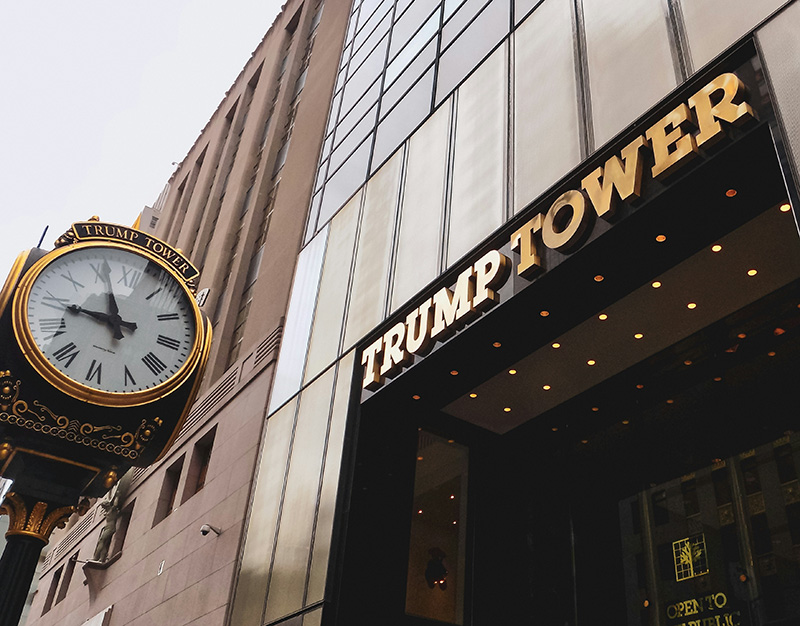
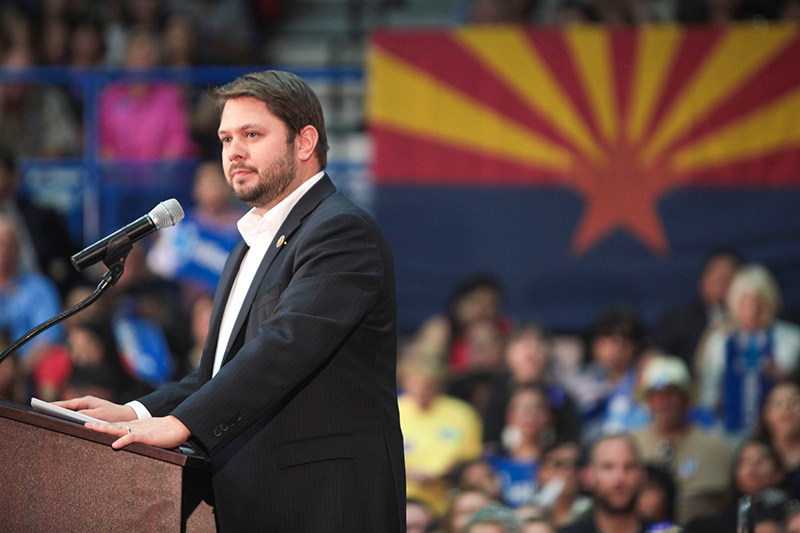















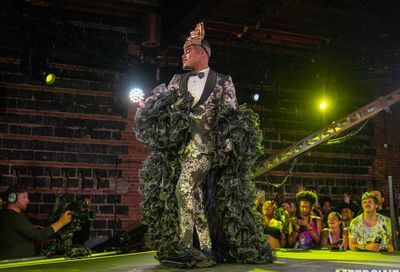
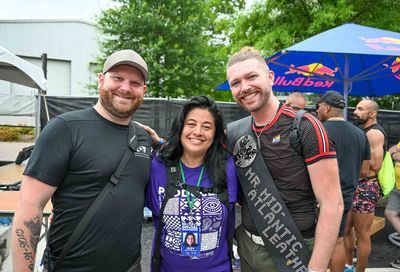
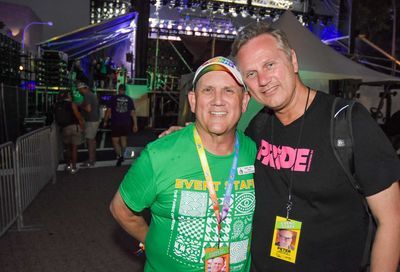
You must be logged in to post a comment.